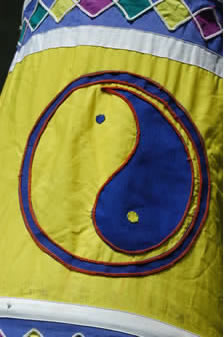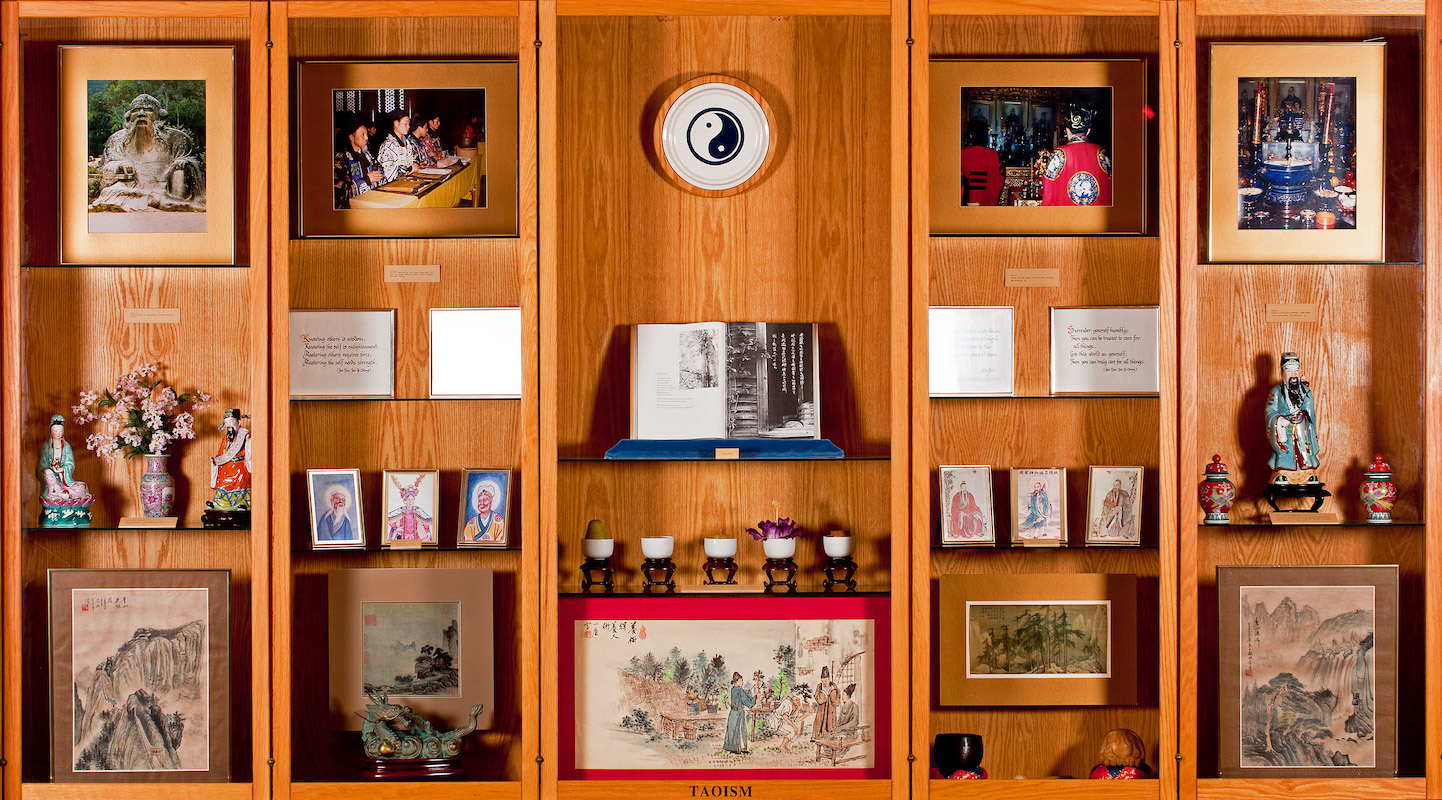Taoism
“Those who know do not talk.
Those who talk do not know.
Keep your mouth closed.
Guard your senses.
Temper your sharpness.
Simplify your problems.
Mask your brightness.
Be at one with the dust of the earth.
This is primal union.
He who has achieved this state
Is unconcerned with friends and enemies,
With good and harm, with honor and disgrace.
This, therefore, is the highest state of man.”—Tao Te Ching
“The best of people are like water; water benefits all things and does not compete with them. It dwells in the lowly places that all disdain—wherein it comes near the Tao.” —Lao Tsu

Zhuxiang Zan (Incense Prayer Hymn)
The Chinese concept of Tao means the unmanifest God from which all things spring and also the path to union with that force. The constant change created by the interplay of the Yin and Yang, or the negative and positive forces of creation, form the central focus of Taoism. A Taoist seeks oneness with nature, for by being in tune with change, the individual becomes a quiet spot in the storm of existence. Changes still occur but they flow through the Taoist as a ripple in water or wind through leaves.
The best known Taoist master was Lao Tsu. His philosophy accented Wu-Wei, or non-action. “Do nothing and everything is done.” Rather than forcing the will on a situation, a Taoist practicing Wu-Wei lets actions come from the unconscious. Lao Tsu wrote only one book, the Tao Te Ching. In this slim volume of only 5,000 characters, Lao Tsu presents the paradoxes of life; for example: “Stretch a bow to the limit, and you will wish you had stopped in time.”
The Tao Te Ching is predated by the I Ching, or Book of Changes. The I Ching presents an interconnected system of relationships affecting every aspect of life, showing the balance of Yin and Yang (masculine and feminine polarities) in each. It has been used throughout the ages to isolate the moment and to predict the future. The works of Confucius, the I Ching, the Tao Te Ching, and the works of Chuang Tsu, the greatest of the followers of Lao Tsu, form the backbone of Chinese philosophy.
The pure Taoism of Lao Tsu and Chuang Tsu is a very individualistic faith. Devoid of dogma and ceremony, Taoism was practiced by mystic hermits and wandering monks. Its random nature was the balance of the orderliness of Confucianism, a highly-structured Chinese religion.
The practical teachings of Taoism can be summarized by four lines from the Tao Te Ching: “Reveal thy simple self. Embrace thy original nature. Check thy selfishness. Curtail thy desires.” —Lao Tsu
All Faiths Hall Quotations
“Knowing others is wisdom;
Knowing the self is enlightenment.
Mastering others requires force;
Mastering the self needs strength.” —Lao Tsu
“Cherish that which is within you, and shut off that which is without;
for much knowledge is a curse.” —The Works of Chuang Tsu
“See the small and develop clear vision;
Practice yielding and develop strength;
Use the outer light to return to the inner light and save yourself from harm.” —Lao Tsu
“Surrrender yourself humbly;
Then you can be trusted to care for all things.
Love this world as yourself;
Then you can truly care for all things.”—Lao Tsu

